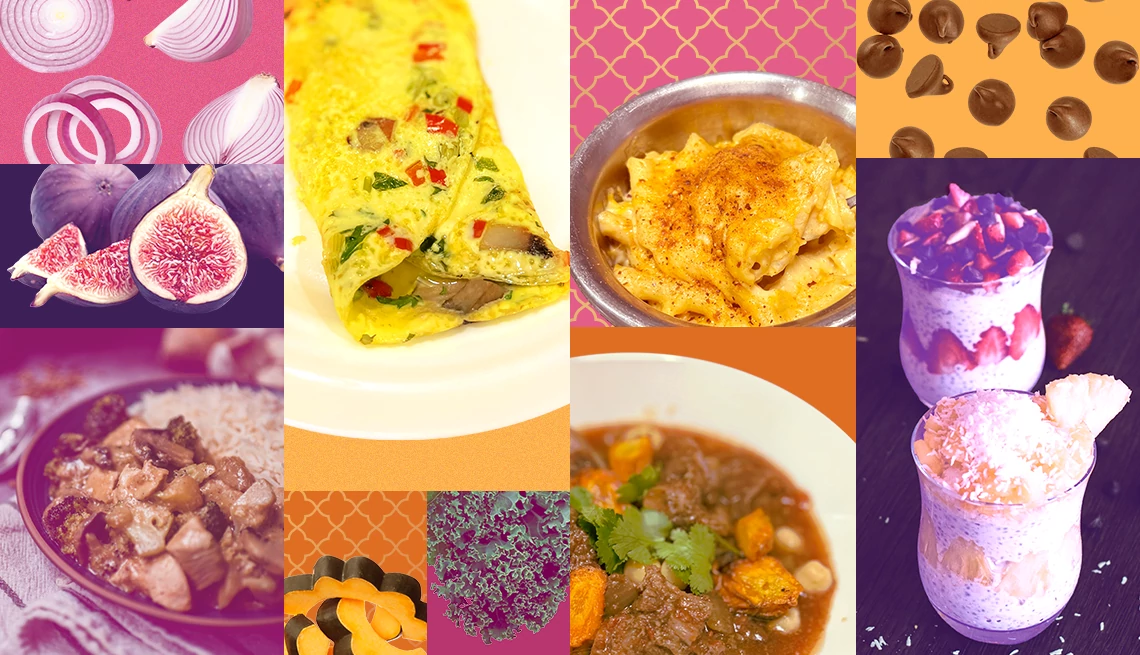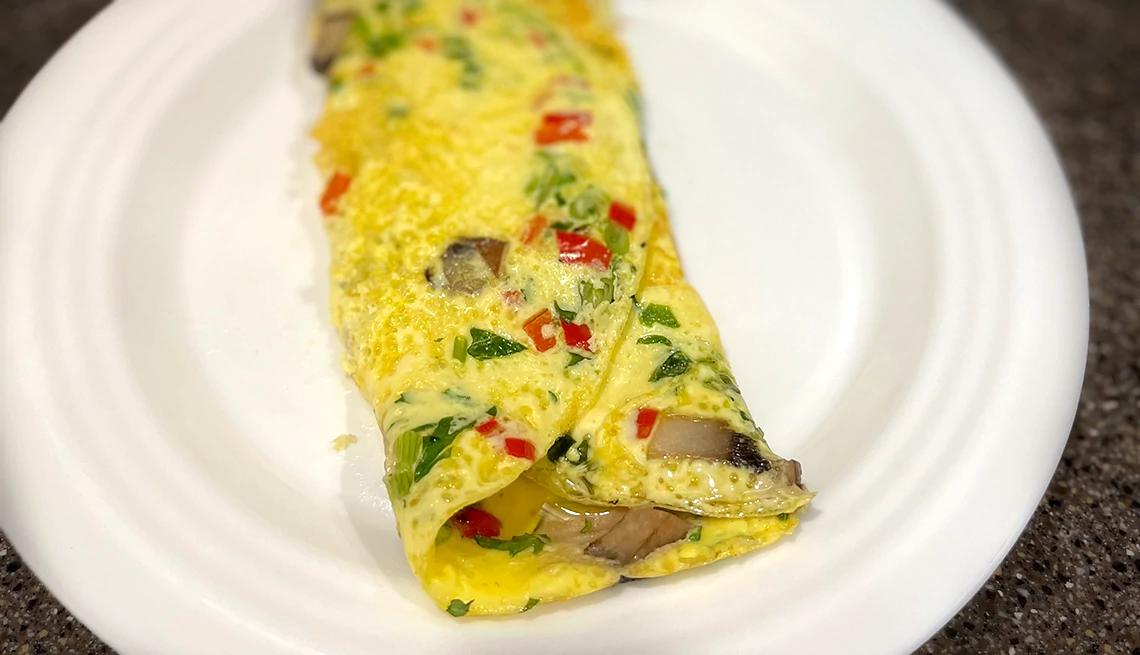AARP Hearing Center


Fasting is a central part of Ramadan, the Muslim holy month observed this year from Tuesday, February 17, to Thursday, March 19. Practiced from sunrise to sunset throughout the 30-day lunar month, fasting is meant to heighten one’s connection to God and cultivate empathy and generosity toward others.
That can mean around 12 hours without eating or drinking, making the food before sunrise and after sunset especially important on a physical, mental and spiritual level, says Jamela Bilal, a halal-certified meal prep chef based in Philadelphia.
Here are recipes and tips from Muslim chefs and health experts to help get you through your day during the holy month.
Before sunrise, go for meals that will last
A suhoor meal is eaten around 5 or 6 a.m. Favorites for Bilal include protein, healthy fats, slow-burning carbs, and hydrating foods like cucumbers or fresh fruit.
“What you eat in the morning is pivotal,” says Bilal, who runs the meal delivery business, Halal2Go. She adds that while a nutrient-dense morning meal won’t stave off hunger entirely, a high-protein meal like her vegetable-studded omelet helps “give you good energy to last throughout the day.”


OMELET WITH KALE
- 2 eggs
- Salt and pepper to taste
- Olive oil for cooking
- ¼ cup diced scallions
- ¼ cup chopped red pepper
- ½ cup chopped kale
- ¼ cup shredded cheese
Directions
- In a bowl, whisk the eggs until well beaten. Season with salt and pepper.
- Heat a small skillet over medium heat and add a drizzle of olive oil.
- Add the scallions, red pepper and kale to the skillet, and sauté until the kale is wilted and the scallions are translucent.
- Pour the whisked eggs over the scallions, red pepper and kale mixture.
- Allow the eggs to cook for a few minutes, until the edges start to set.
- Sprinkle the shredded cheese over one-half of the omelet.
- Using a spatula, fold the other half of the omelet over the cheese side to create a half-moon shape. Cook for another minute, or until the cheese is melted.
- Slide the omelet onto a plate and serve hot.
Optional: Serve with a meat protein like smoked salmon or turkey or beef sausage









































































More From AARP
Stretch Your Food Budget With Tips From Chef Lidia Bastianich
From freezing tomatoes to using alternative cuts of meat, the restaurateur learned at a young age how to make food go further
Healthy Eating Doesn't Have To Be Expensive
Plenty of ways to whip inflation and eat heallthy foods, too
Staples You Should Always Buy On Sale
If they store well or freeze well, jump at the chance to buy on sale
Recommended for You